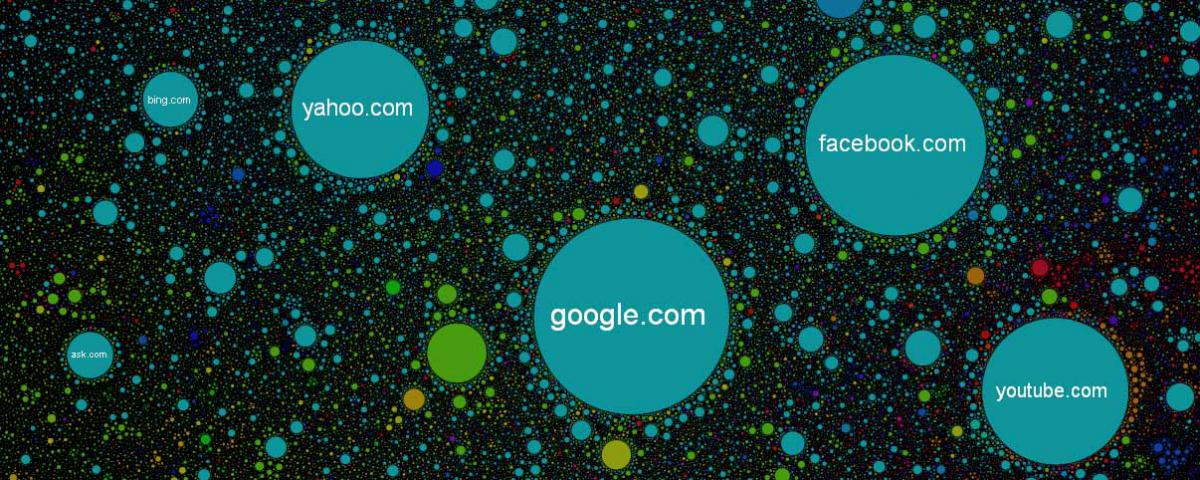Searching the internet, online shopping, social networking, emailing, reading, internet banking, internet researching, and a lot more. Those are what people do in common when they're visiting the World Wide Web. As more people are connected to the internet, the more people are doing these in more points in their lives.
The internet's web is powered by numerous technologies, like HTML5 and CSS3, JavaScript, and more. Most websites normally have contents that they want people to read. They create, write, post, share, just to make people happy, in return for revenue.
Web developers and designers are trying to create a standard for the web, giving as much as they can to please visitors. But there something limiting them: users' web browsers.
The Limited Potential, The Unlimited Possibilities
The internet is advancing fast. And the new and updated technologies that powers it, have helped web developers and we designers to build better web application, faster and easier. But there is a huge block that prevent these people to unleash the full potential of the web, that that is old web browsers.
To browse the internet, people need to use a web browser. The software allows people to navigate the web by seeing web pages and jumping from one place to another using links. Without a web browser, they can't view or interact with websites.
Microsoft's Internet Explorer is one of the most iconic web browsers the world has ever seen. Shipped as standard on most Windows operating system, the browser is (was) one of the most common ways for people to start navigating the web.
However, the development of IE is somehow limited. Over the years, massive number of web technologies are introduced, and to most avid internet users, IE is somehow unstable, less secured and relatively slower.
Despite each IE updates do enhance its ability, some people have seen enough of IE and tend to use other web browsers. But if you still like IE to be your default and favorite web browser, always look for any updates if available.
The Old Ones to be Replaced
Old web browsers are good, at least in their time. In terms of technology, one year old is enough to make a software outdated by a long mile. Old web browsers, if used in the current time, are less stable, and much more vulnerable to viruses, malware and other security issues.
These can give a lot of problems to the user - especially those that are active on online shopping, e-banking and other online activities that use private information for transaction.
Security alone has given a very good reason for users to update their web browsers. But there is more than just security problems that old web browsers have as disadvantages.
The next problem is speed. Old web browsers are slower when they're loading a web page. When a browser asks a server for a webpage, it performs a number of different task simultaneously: loading different files, looking for resources online, looking at stored cookies, see whether the page has a cache available, giving IP address to communicate, and more. Old web browsers aren't as efficient in managing all those tasks as newer web browsers, and this will give a bad browsing experience to users.
At some point, the browser can even crash. And it can also prevent users to access some websites.
Then comes their capabilities. Old web browsers understand less web technologies if compared to newer ones. This would prevent them from displaying web pages correctly. For example, old web browsers couldn't show some animations and codes written in newer version of CSS.
As the web technologies urge web developers to use the newest version of HTML and CSS, these languages serve as a foundation for many websites today, and virtually every new websites and web applications. But unfortunately, the new technologies can't be rendered, or look nor function in the same way in old versions of web browsers.
New Web Browser, New Experience
While old web browsers are keeping both web developers and web designers back, newer web browsers give more freedom. Despite they're not perfect, they're still way better than old web browsers in almost every categories.
To some people, finding an alternative to Microsoft's Internet Explorer is not at all difficult. There are plenty of modern and free web browsers available on the internet. The most popular ones are: Google Chrome, Mozilla Firefox, Opera and Apple's Safari.
Newer browsers have a number of advantages over older browsers, including: fewer instances of crashing, more secured, faster in loading web pages, larger viewing area, large optional plugins and addons, and more.

Conclusion
You may want to stick to your old web browser for a reason, but there a countless of reasons to upgrade and start your internet experience with something new.
Whatever you do on the web, no one is a hundred percent anonymous all the time. Your browsers is the gate that opens you to the digital world of internet. What good can it be if you can't experience the best the internet has to offer?